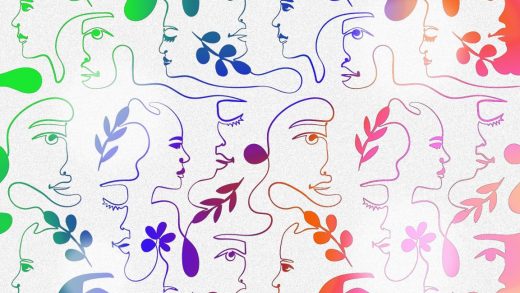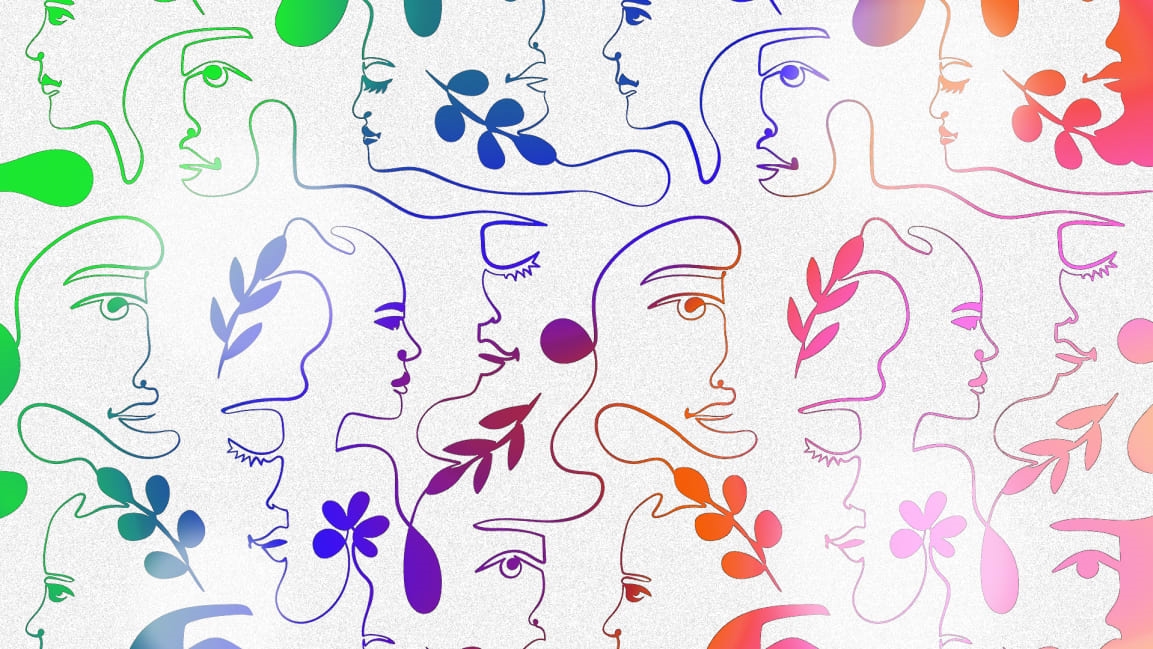Neurodivergent people make great leaders, not just employees
By Ludmila N. Praslova
People don’t usually attend voluntary training sessions on neurodiversity inclusion with the intention to ask ableist questions. They come because they want to be allies. And yet, even among would-be allies, the typical question is, “how can I/others be a better leader to autistic people.” Why not “how can I be a better colleague, direct report, or ally?” This thinking can’t be explained by a habit of being high in organizational hierarchy – the question is often asked by individuals who never had managerial responsibilities.
This seemingly innocuous question reflects one of the most persistent stereotypes associated with implicit ableism. Many believe that autistic and, more broadly, neurodivergent individuals (e.g., those with ADHD or learning differences) can’t be leaders. Prominent examples such as Richard Branson, Charles Schwab (dyslexic) or Elon Musk (autism spectrum) are explained away as rare exceptions. Other models of autistic leadership in business, politics, or the Navy, as well as the many examples of small business owners, are sensationalized and ignored at the same time. Overall, neurominorities are still seen as only “fit” for subordinate positions or select (usually technical) individual contributor roles.
Tellingly, another popular question is “which jobs are suitable for autistic (or other neurodivergent) people?” It reveals the same underlying ableist assumption: that the full range of jobs isn’t suitable. In reality, there is a tremendous range of talents and abilities among neurodivergent individuals, matching the full range of jobs available—plus some jobs that never existed until neurodivergent people created them.
Much of the job creation comes out of necessity. Elon Musk said that he only became an entrepreneur known for Tesla and SpaceX because he could not get a job—and so did many others. Bias against neurominorities in the workplace is staggering, with 50% of UK managers stating that they would not hire neurodivergent talent. According to The Economist, “autism is a condition that defies simple generalizations. Except one: The potential of far too many autistic people is being squandered.” Workplace access and success barriers result in the unemployment rate of autistic college graduates in the U.S. as high as 85%, while 46% of employed autistic adults are over-educated or overqualified for their roles.
Unemployment data seems shockingly incongruous with the findings that autistic professionals can be up to 140% more productive than the average employee, and that neurodivergent traits are associated with much-needed originality of ideas.
However, dwelling on the “business case” for diversity has many limitations. Without the desire to support the dignity and thriving of all humans, the business rationale for diversity is not effective—and it can even promote commodifying talent, while simultaneously dehumanizing individuals and perpetuating bias. First, the lack of inclusion is a major injustice to neurodivergent people, genius-level talent or not. Second, it is an opportunity loss for organizations and our larger society.
Some might say that the unemployment data indicates the need to focus on the most immediate issue—neurominority hiring. Organizations can address the leadership issue later on. However, inclusion is truly effective only if it is systemic. The lack of neurominority perspective in leadership is a crucial link in the vicious cycle of prejudice and exclusion. Without addressing all stages of the talent pipeline simultaneously, we are unlikely to see much progress in inclusion.
Tackling long-standing biases requires an understanding of how these biases function. Specifically, how do people who consider themselves moral and just continue to deny opportunities to others? And why do organizations shun neurodivergent talent while struggling with a talent shortage?
Myths about neurodiversity
Bias, including ableism, is persistent because several psychological mechanisms support it. Here are three important ways in which prejudice against neurominorities is maintained:
1. Successful careers of neurodivergent individuals are seen as an exception, via subtyping
Subtyping is a mechanism that supports persistence of stereotypes by clustering group members who defy the stereotype into subgroups, such as “educated immigrants” or “prominent autistics.” Separating out people like Anthony Hopkins, Daryl Hannah, or Greta Thunberg can support the idea that others are “really autistic,” leaving the stereotype intact. The belief that success is only possible for a few, exceptional neurodivergent individuals persists despite the many examples and data. For instance, one UK study of self-made millionaires revealed that about 40% of the 300 studied were dyslexic (vs. 10% of dyslexic individuals in the general population).
2. Pathologizing of positives and strengths
Because of the overall negative stereotypes of neurodivergence, even positive behaviors or attributes can be interpreted as negative. In a recent study of moral behavior in autistic vs. non-autistic people, autistic participants acted ethically regardless of whether they were observed, while “healthy controls” (meaning, the non-autistic people) were less ethical when not observed. The authors interpreted the consistently ethical behavior of autistic participants as a moral deficit—a pathology. After outrage from the autistic community, the report wording was slightly modified, but much of the pathologizing language remains.
3. Perpetuating misinformation
Another question often asked in the context of autism inclusion is “how can organizations work with someone who lacks empathy?” An openly autistic business leader Charlotte Valeur was even asked “how do you deal with empathy” in a board position interview. The assumption underlying this question is that autistic people lack empathy. However, the relationship between empathy and autism is complex. Overall, autistic people vary in empathy (just like neurotypicals); desire relationships just as much; and many report very high levels of caring. The key issue in interactions with neurotypical individuals is not an “autistic deficit” but a dual empathy problem, with neurotypical individuals lacking empathy toward autistic people and exhibiting significant automatic bias and exclusionary behaviors.
Similarly, there is a persistent stereotype that “all people with Tourette’s use obscene words and have anger and cognitive issues.” In fact, coprolalia, the involuntary and repetitive use of obscene language, is a rare symptom, and most people with Tourette’s have normal emotional regulation and intelligence.
Myths about leadership
The current fast-changing environment of reinventing work presents opportunities to improve the inclusion of neurodivergent people on all levels of organizations. However, in addition to debunking myths about neurodivergence, this would require debunking leadership myths.
The perception of neurodivergence as an obstacle to advancement is supported by outdated ideas about leadership. These ideas include:
1. A Fascination with confidence and charisma
This can lead to the rise of arrogant incompetent individuals, and ultimately harm a team’s productivity and morale. With more attention to substance over style, organizations could benefit from the expertise and commitment of humble, capable, and fair leaders—including neurodivergent ones. Over time, this could also help break organizational cycles of discrimination and make workplaces more inclusive.
2. The focus on command and control management
According to Ron Carucci, author of Rising to Power and To be Honest, leaders who “micromanage and exercise every bit of authority that comes with the role, no matter how trivial,” and insist on “making most of the decisions and having most of the answers” create inefficiencies and frustrations. The “command” model does not work in the knowledge and creativity economy and with self-motivated individuals and teams. Leaders who bring out the best in motivated teams are often introverted and humble.
In the context of distributed and remote work “command and control” tactics become increasingly counterproductive. Instead of exerting positional power, the future of work calls for leading through influence—and that requires focusing on purpose and authenticity rather than control. Purpose-focused influence is an excellent fit for neurodivergent strengths, as demonstrated by activists like Greta Thunberg or Daryl Hannah. So is thought leadership derived from creativity and innovation.
Moreover, one of the most promising models of leadership for creativity is shared leadership. Effective use of shared leadership requires group diversity, which is often impeded by the third leadership myth.
3. The tyranny of “fit”
Excessive focus on group cohesion results in groupthink in leadership teams. A suggested way to limit the dangers of groupthink is to appoint “devil’s advocates.” Neurodivergent individuals, traditionally labeled as “poor fit,” are likely to bring original thinking and honesty to help leadership teams think more carefully, objectively, and creatively, enhancing the competitive advantage. An idealistic teen climate activist Greta Thunberg and the tech innovation billionaire Elon Musk could not have been more different from the “average”—and from each other. Yet, it might be our desire to break from the tyranny of fit that made these two neurodivergent individuals Time magazine persons of the year 2019 and 2021, respectively.
Making the world of work more inclusive of neurodivergent leadership will require significant effort to let go of biases and embed inclusion deep within organizational processes. However, the stakes are extremely high, as implicit ableism might be impeding the rise of the very leadership we need to survive. According to Caroline Stokes, author of Elephants Before Unicorns, a thought leader on organizational emotional intelligence, and executive coach powered by ADHD, “survival of the organization in the 21st century will depend on creating high integrity product and people-first culture, to positively impact high-stakes human and planetary needs.” Leaders who follow their ethical principles regardless of whether they are observed or not are likely to play a major role in ensuring this survival.
Ludmila N. Praslova, PhD, SHRM-SCP, uses her extensive experience with global, cultural, ability, and neurodiversity to help create inclusive and equitable workplaces. She is a professor and director of Graduate Programs in Industrial-Organizational Psychology at Vanguard University of Southern California.
Fast Company , Read Full Story
(35)



